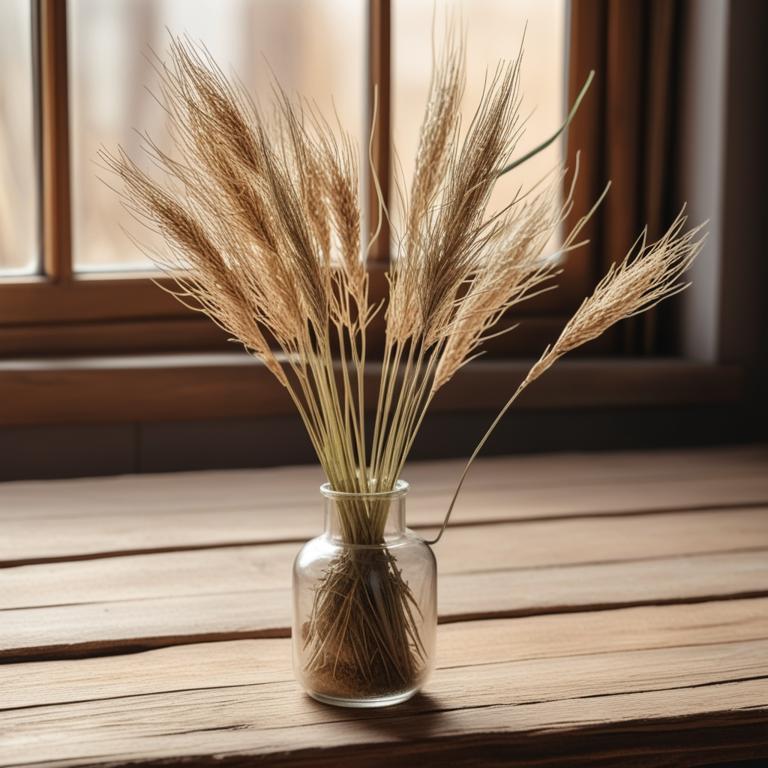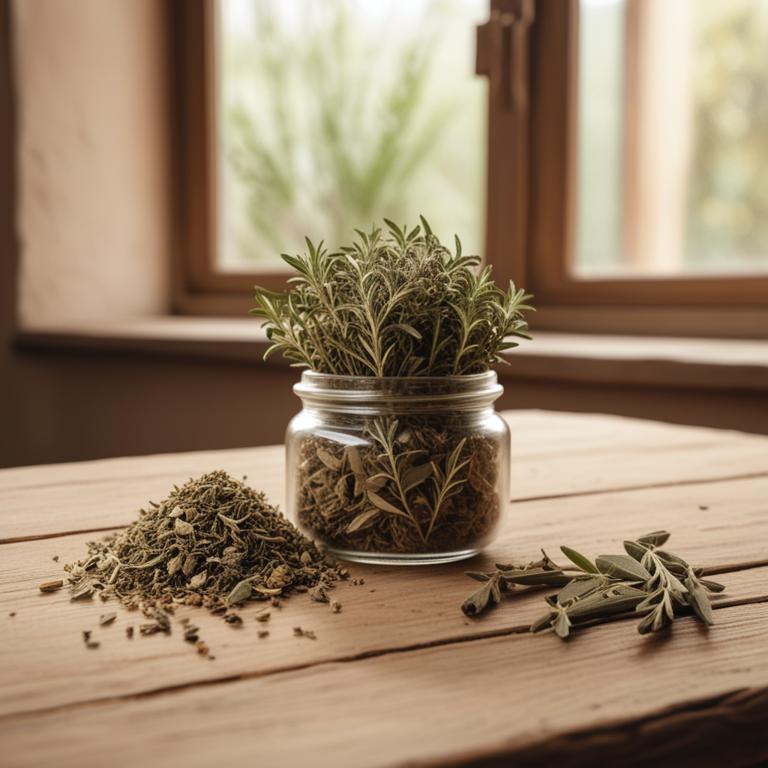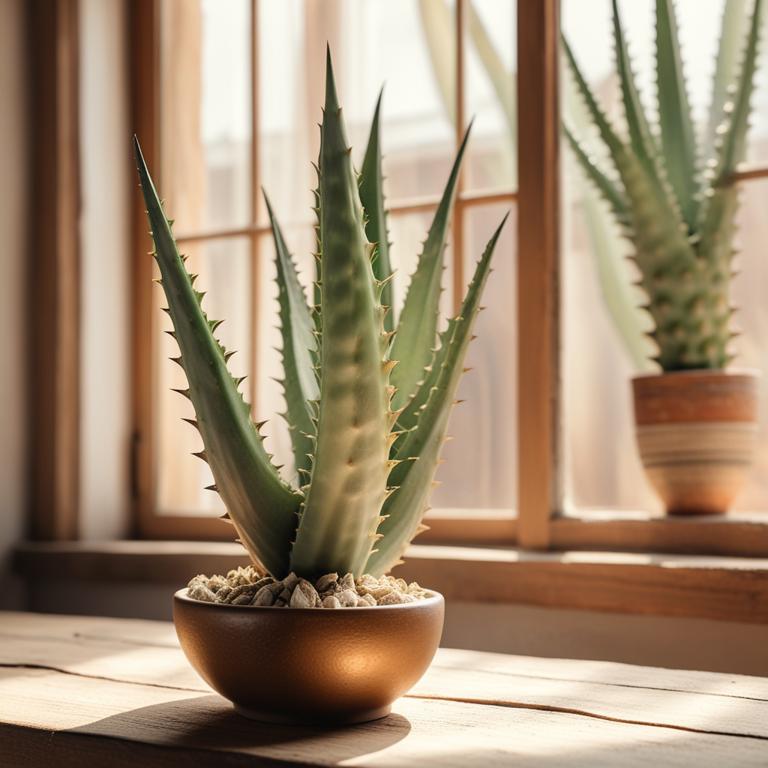Updated: Dec 1, 2024
Fungal Skin Infection: Causes, Treatment with Medicinal Herbs, and Prevention
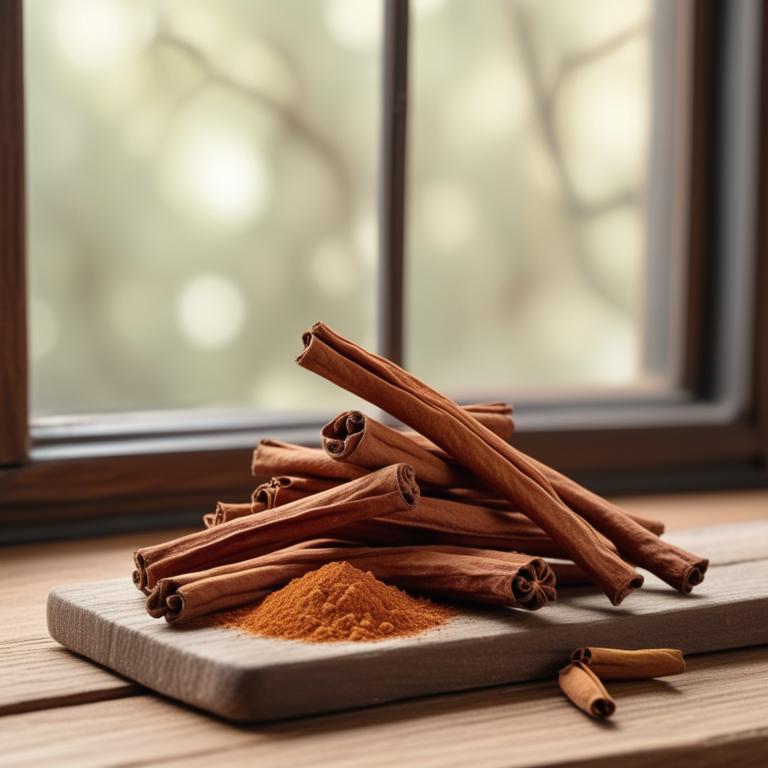
Fungal skin infections, also known as ringworm or athlete's foot, are common conditions that can cause discomfort and embarrassment.
They appear as red, itchy patches on the skin, often with a circular shape, and can spread quickly if left untreated. This can lead to social anxiety and affect daily activities. Fungal skin infections are usually caused by a fungal spore that enters the skin through a cut or crack, often in areas that are moist and warm. Herbal remedies have been used for centuries to treat fungal skin infections. Herbs like tea tree oil, neem, and aloe vera have antifungal properties that can help combat the infection.
Neem, in particular, has been shown to inhibit the growth of fungal spores, while aloe vera's soothing properties can reduce inflammation and itching. Tea tree oil, with its strong antimicrobial properties, can be applied topically to affected areas. To use these herbs, you can try making a tea by steeping dried neem leaves or aloe vera in hot water. You can also apply tea tree oil directly to the affected area using a cotton swab. Additionally, you can make a paste by mixing neem powder with water and applying it to the affected area.
Remember to always do a patch test before using any new herbal remedy to ensure you don't have any sensitivity or allergic reactions.
Table of Contents
- What are the reasons behind fungal skin infection?
- What advantages do herbs offer in the treatment of fungal skin infection?
- What are the main medicinal herbs effective against fungal skin infection?
- What are the top herbal remedies for fungal skin infection?
- What herbs should be avoided if you're suffering from fungal skin infection?
- FAQ
What are the reasons behind fungal skin infection?
The main causes of fungal skin infection are usually linked to a combination of factors.
Ringworm, also known as tinea corporis, is caused by a fungal spore entering the skin through a cut or scratch. This spore can be picked up from contaminated surfaces, animals, or people. Athlete's foot, or tinea pedis, is often contracted in public showers or locker rooms where fungal spores thrive in warm, moist environments.
Jock itch, or tinea cruris, is typically caused by a combination of friction, sweat, and fungal spores in the genital area. Onychomycosis, or fungal nail infection, is usually a result of fungal spores entering the nail through a crack or cut, often from walking barefoot in public areas or sharing personal care items. Tinea barbae, a fungal infection of the beard, is usually caused by a fungal spore entering the skin through a cut or scratch, often from sharing personal care items or coming into contact with an infected animal.
In all cases, a warm, moist environment and poor hygiene can contribute to the growth and spread of fungal infections.
What advantages do herbs offer in the treatment of fungal skin infection?
Using herbs for fungal skin infections can be a great alternative to traditional treatments.
One of the main benefits is that they are often gentler on the skin, causing less irritation and discomfort. These herbs can help to reduce inflammation and ease symptoms like itching and redness.
They can also help to promote a healthy balance of bacteria on the skin, which can prevent fungal infections from coming back. Additionally, some herbs have antifungal properties that can directly target and kill the fungus, speeding up the healing process.
This makes them a popular choice for people who want to try a more natural approach to treating fungal skin infections.
What are the main medicinal herbs effective against fungal skin infection?

Herbs have been used for centuries to treat fungal skin infections.
One effective herb is Melaleuca alternifolia, also known as tea tree oil, which has antimicrobial properties that help kill fungal and bacterial cells. This makes it a great natural remedy for infections like ringworm and athlete's foot. Garlic, or Allium sativum, is another herb that has antifungal properties. It contains compounds that can inhibit the growth of fungi, making it a useful treatment for fungal infections. People have been using garlic for centuries to treat a variety of health issues, including fungal skin infections. Oregano, or Origanum vulgare, is a herb that has been traditionally used to treat fungal infections.
It contains compounds that have antimicrobial properties, which can help to kill fungal cells and prevent the spread of infection. Oregano is often used in combination with other herbs to create a powerful treatment for fungal skin infections. Ginger, or Zingiber officinale, is a herb that has anti-inflammatory properties, which can help to reduce redness and swelling associated with fungal skin infections. It also has antimicrobial properties that can help to kill fungal cells, making it a useful treatment for infections like ringworm and athlete's foot. Turmeric, or Curcuma longa, is a herb that has powerful antifungal and anti-inflammatory properties. The active compound in turmeric, curcumin, has been shown to inhibit the growth of fungi and reduce inflammation associated with fungal skin infections. This makes turmeric a useful natural remedy for treating a variety of fungal skin infections.
These herbs can be used in a variety of ways, including applying them topically to the affected area, taking them internally as supplements, or using them in combination with other natural remedies to create a powerful treatment for fungal skin infections.
What are the top herbal remedies for fungal skin infection?
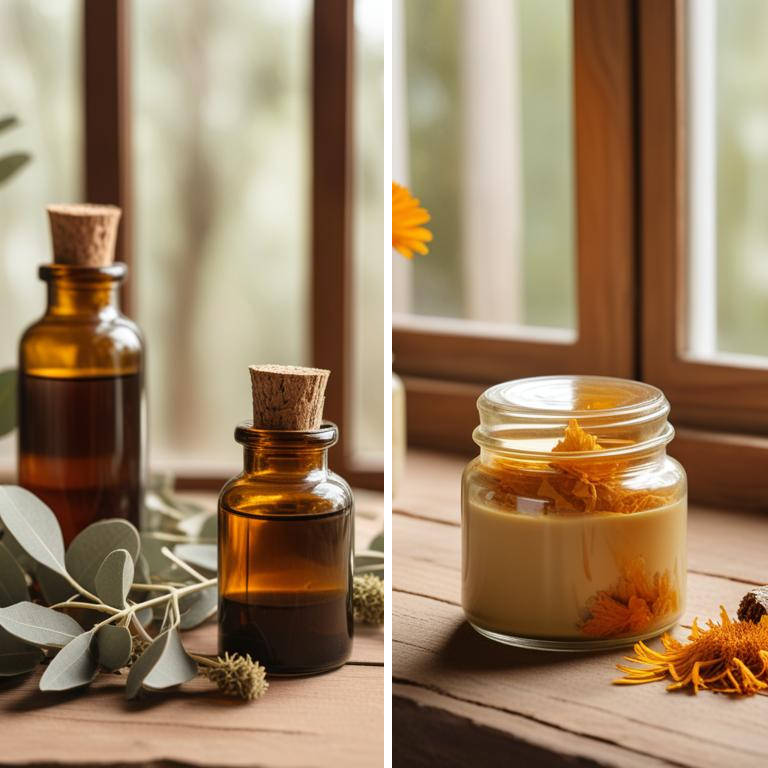
Herbal preparations can be a great way to treat fungal skin infections like athlete's foot or ringworm.
A decoction is a liquid herbal remedy that you can drink or apply topically. It's made by boiling herbs in water, which helps to release their active ingredients. Some herbs like tea tree oil and goldenseal have antifungal properties that can help to kill off fungal infections. A tincture is a concentrated liquid extract of an herb. It's often used to treat fungal infections because it's easy to apply directly to the affected skin. Tinctures are usually made with a mixture of herbs and a solvent like ethanol or glycerin. They're also easy to store and transport. A salve is a thick, greasy paste made from herbs and a carrier oil like coconut or olive oil. It's often used to treat fungal infections on the skin, especially on areas like the feet or groin.
Salves can be applied directly to the affected area and can provide long-lasting relief from fungal infections. An ointment is similar to a salve, but it's usually thicker and more paste-like. Ointments are often used to treat fungal infections on the skin, especially on areas like the face or hands. They can be applied directly to the affected area and can provide quick relief from fungal infections. A cream is a smooth, spreadable paste made from herbs and a carrier oil like coconut or olive oil. It's often used to treat fungal infections on the skin, especially on areas like the feet or groin. Creams can be applied directly to the affected area and can provide long-lasting relief from fungal infections. Herbs like tea tree oil, goldenseal, and calendula have antifungal properties that can help to kill off fungal infections. They work by disrupting the cell membranes of fungal cells, which ultimately leads to the death of the infection.
These herbal preparations can be a great way to treat fungal skin infections without the need for harsh chemicals or antibiotics.
Additional Resources:
What herbs should be avoided if you're suffering from fungal skin infection?
If you have a fungal skin infection, it's best to be careful with certain herbs.
Cinchona officinalis, for example, has properties that can stimulate the skin and make it more prone to infection. This can make your fungal infection worse. Hypericum perforatum, also known as St. John's Wort, can increase the sensitivity of your skin, which may irritate the infection and prolong the healing process.
Echinacea purpurea is often used to boost the immune system, but it can also stimulate the skin, which may not be what you need when you have a fungal infection. Aloe barbadensis is a soothing herb, but it can also stimulate the skin and make it more reactive, which can be counterproductive when you're trying to heal a fungal infection. Ginkgo biloba can thin the skin, making it more susceptible to infection and irritation.
Using these herbs can potentially worsen your fungal skin infection, so it's best to avoid them until your skin is fully healed.
FAQ
Are there any specific herbs that can prevent fungal skin infection?
Tea tree oil has been known to help prevent fungal skin infections.
It has antibacterial properties that can fight off germs and keep skin healthy. You can apply it topically to affected areas or mix it with other products to create a soothing balm.
Some people also use neem oil for its antifungal properties.
Is it safe to use herbal remedies for fungal skin infection during pregnancy?
Using herbal remedies for fungal skin infections during pregnancy can be tricky.
Some herbs, like tea tree oil, might help, but they can also cause problems if not used carefully.
Since their effects on the fetus aren't fully understood, it's best to use them with caution and in small amounts.
Are there any herbs that can reduce the frequency of fungal skin infection?
There are some herbs that may help reduce the frequency of fungal skin infections.
Tea tree oil, found in tea trees, has antifungal properties that can fight off fungal growth.
Oregano oil, from oregano plants, also has antifungal properties that can help prevent fungal infections from occurring in the first place.
Can i combine different herbal remedies for fungal skin infection?
You can combine different herbal remedies for fungal skin infections, but be cautious.
Some herbs may interact or worsen symptoms. For example, tea tree oil and neem oil can be used together, but mix them in small amounts and test on a small area first.
This will help prevent any adverse reactions.
Related Articles

The Causes and Effects of Stye: Medicinal Herbs and Herbal Preparations for Relief
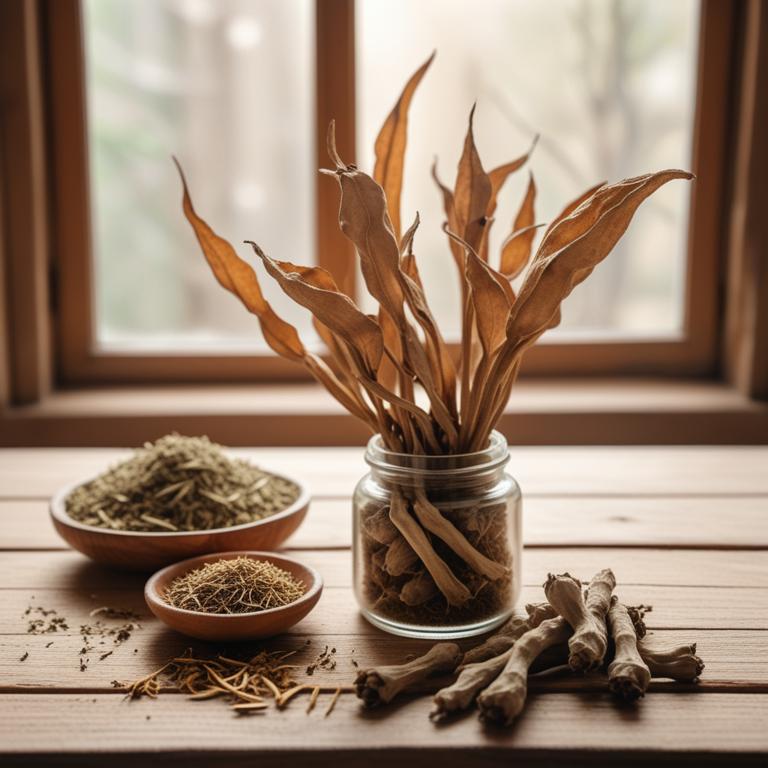
Tooth Decay: Causes, Prevention, and Herbal Preparations
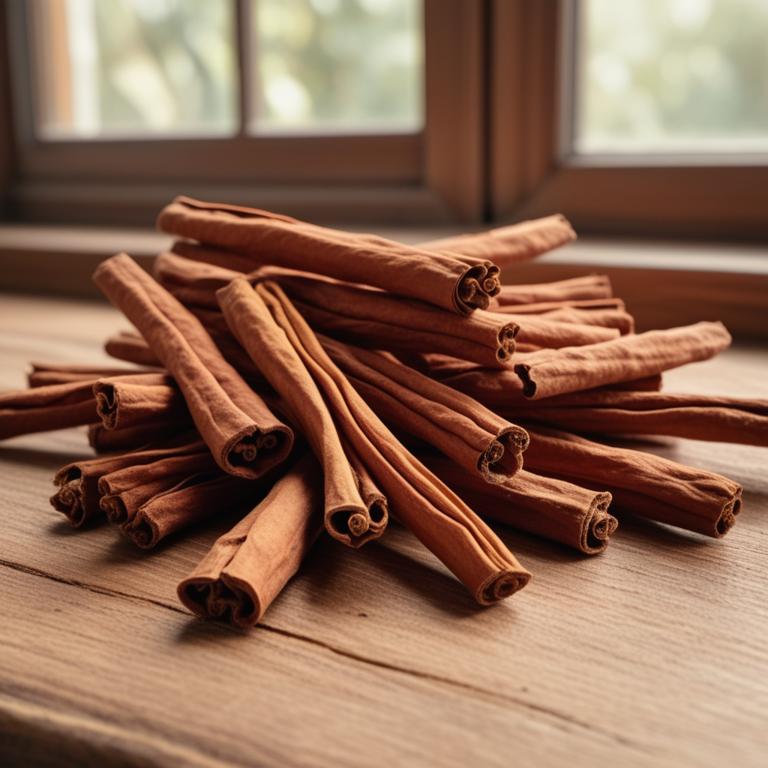
Overcoming Bad Breath with Medicinal Herbs and Herbal Remedies
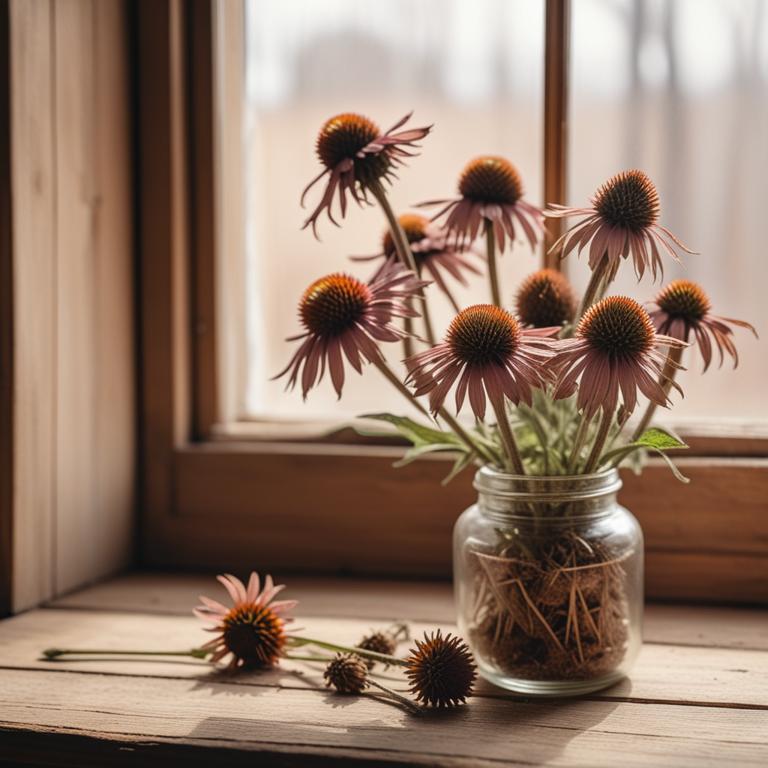
Gum Swelling: Natural Causes and Medicinal Herbs for Treatment
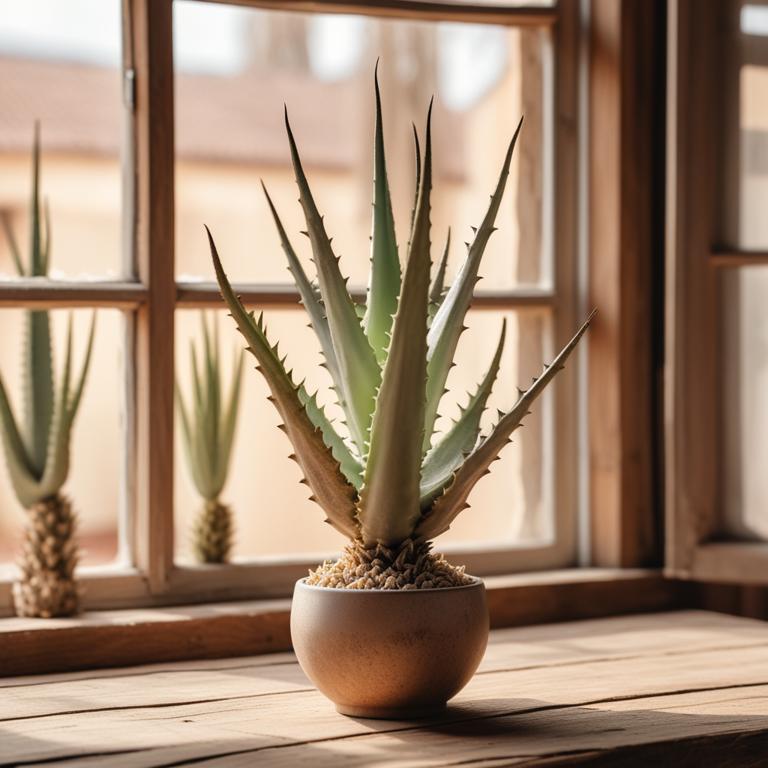
Causes and Remedies of Burning Feet: Medicinal Herbs and Herbal Preparations




